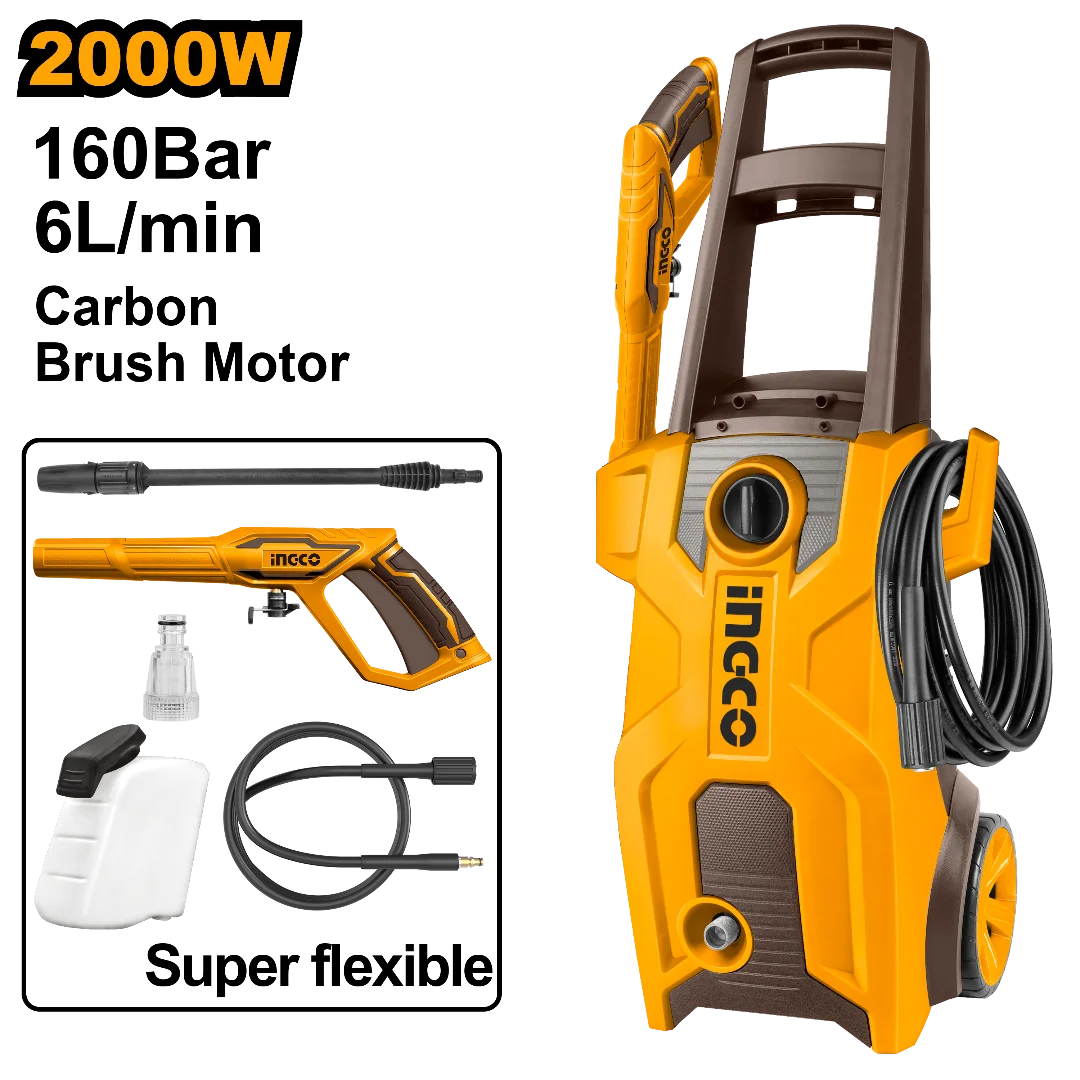Pressure Washer
Pressure Washer: Blast Away Dirt with Power and Precision

If you’ve ever struggled with stubborn grime on your driveway, mildew on your deck, or dust on your car, a pressure washer might be your new best friend. This powerful cleaning tool uses high-pressure water jets to strip away dirt, mold, and stains from a variety of surfaces—fast and efficiently. Whether you're a weekend warrior or a seasoned pro, choosing the right pressure washer can make your cleaning tasks feel less like a chore and more like a satisfying win.
Let’s dive into how pressure washers work, what features to look for, and how to use them safely and effectively. Pressure Washer 40v CPWLI4006 Ingco
How Pressure Washers Work
At its core, a pressure washer takes water from a hose, runs it through a motorized pump, and forces it out through a nozzle at high pressure. This concentrated stream of water can:
- Break up and lift dirt, grease, and mildew
- Strip paint or clean concrete
- Rinse off vehicles, siding, and outdoor furniture
Different nozzles control the spray pattern—from a pinpoint jet for tough stains to a wide fan for gentle rinsing.
Types of Pressure Washers
| Type | Best For | Pros | Cons |
|---|---|---|---|
| Electric | Cars, patios, furniture | Quiet, lightweight, low maintenance | Less powerful, needs outlet |
| Gas-powered | Driveways, siding, large areas | High PSI, portable | Noisy, heavier, needs fuel |
| Cordless | Light cleaning, portability | Mobile, easy to store | Limited power and runtime |
Choose based on your cleaning needs and how often you’ll use it.
Key Features to Consider
When shopping for a pressure washer, keep these specs in mind:
- PSI (Pounds per Square Inch): Higher PSI = more cleaning power
- GPM (Gallons per Minute): More water flow = faster cleaning
- Nozzle types: Adjustable or interchangeable for different spray patterns
- Hose length: Longer hoses offer more reach
- Detergent tank: Built-in tanks make applying soap easier
- Wheels and handles: Improve mobility and storage
How to Use a Pressure Washer Safely
Before you start blasting away grime:
- Wear safety gear: Goggles, gloves, and closed-toe shoes
- Check connections: Make sure hoses and fittings are secure
- Choose the right nozzle: Start with a wider spray and adjust as needed
- Test on a small area: Avoid damaging delicate surfaces
- Never aim at people or pets: The water pressure can cause injury
- Avoid ladders: The recoil can throw off your balance
Always read the manual and follow manufacturer guidelines.
Must-Have Accessories
Boost your cleaning power with these add-ons:
- Surface cleaner: Cleans large flat areas evenly
- Extension wand: Reaches high spots without a ladder
- Foam cannon: Applies soap thickly for car washing
- Turbo nozzle: Spins water for extra scrubbing power
- Quick-connect fittings: Make setup and breakdown faster
Maintenance Tips
Keep your pressure washer in top shape:
- Flush out detergent after each use
- Check hoses and seals for leaks
- Clean or replace clogged nozzles
- Drain water before winter storage
- Store in a dry, covered space
Regular maintenance extends the life of your machine and keeps it running smoothly.
Best Uses for Pressure Washers
Pressure washers are perfect for:
- Decks and patios: Remove algae, dirt, and stains
- Driveways and sidewalks: Blast away oil and grime
- Vehicles: Clean without scrubbing
- House siding: Refresh vinyl, brick, or stucco
- Outdoor furniture: Rinse off dust and mildew
Just adjust the pressure and nozzle to suit each surface.
Where to Buy in South Africa
Looking for a pressure washer locally? Check out:
FAQs
Can I use a pressure washer indoors?
Not recommended—water spray and runoff can damage floors and walls.
Is it eco-friendly?
It uses less water than a garden hose for the same job, but be mindful of runoff and detergents.
How long does a pressure washer last?
With proper care, 5–10 years or more depending on usage and quality.
Do I need special storage in winter?
Yes—drain all water and store in a dry place to prevent freezing damage.
Final Thoughts
A pressure washer isn’t just a cleaning tool—it’s a grime-fighting machine that turns dirty jobs into satisfying wins. Whether you're freshening up your patio or detailing your car, the right model makes all the difference. Choose wisely, gear up safely, and let the water do the work.




